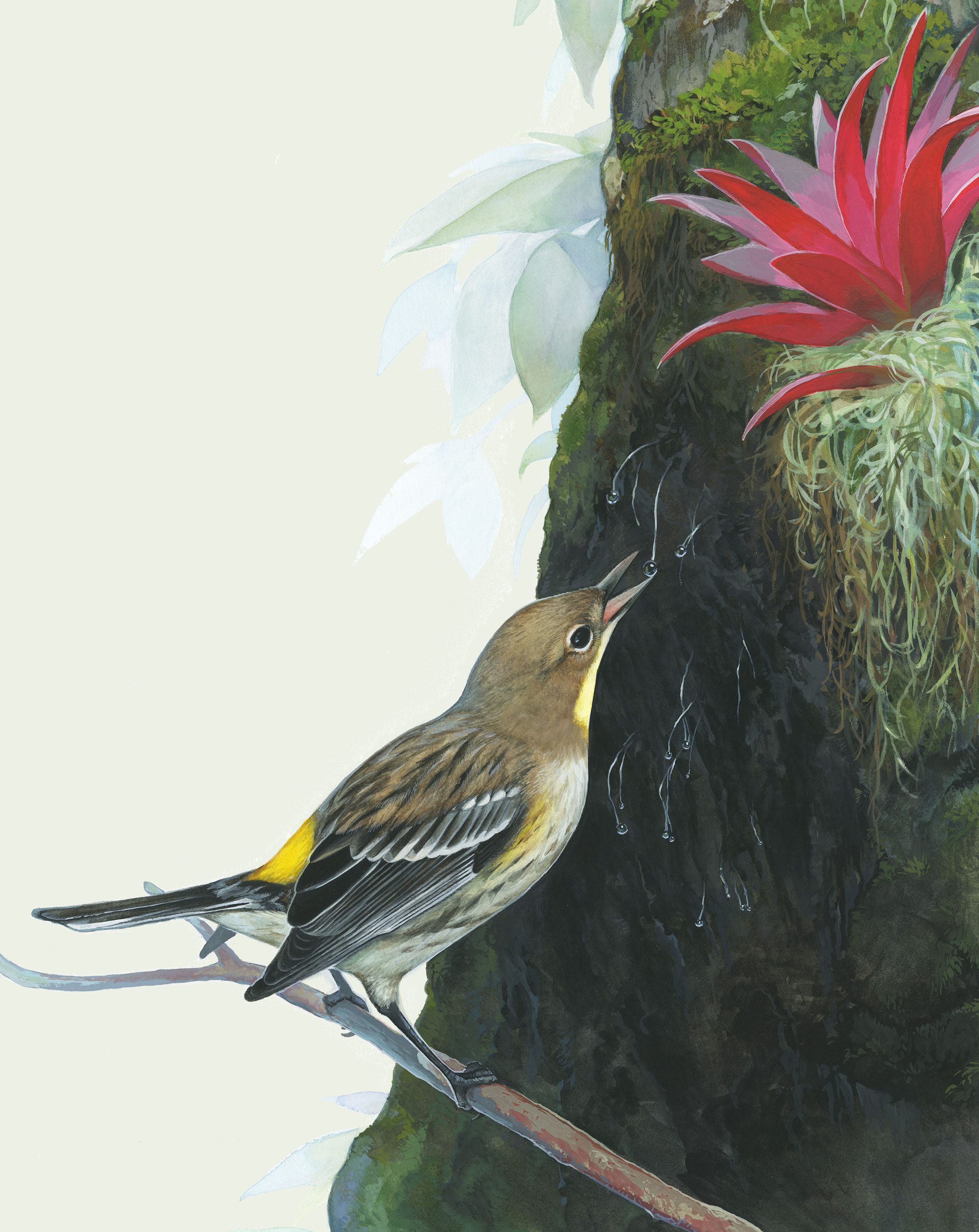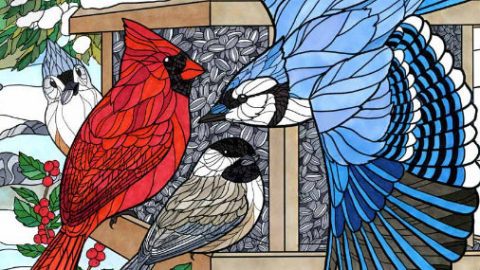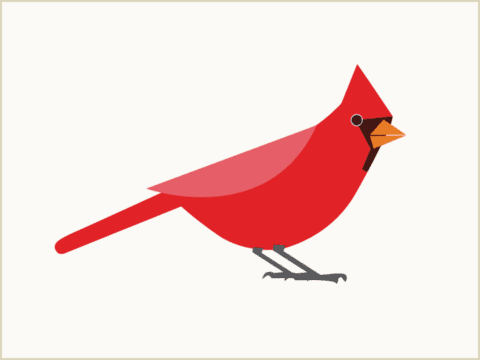Insects in Summer, Honeydew in Winter: Migrant Birds Change Tastes With the Seasons
Adapted from the book Songbird Journeys, by Miyoko Chu, published by Walker Books
January 11, 2017
From the Winter 2017 issue of Living Bird magazine. Subscribe now.
Many Neotropical migratory birds spend the winter in places in the tropics that structurally resemble their summering areas. Bicknell’s Thrushes skulk in dense tangles of vegetation on cloud-shrouded mountains—whether in New England or the Dominican Republic. Louisiana Waterthrushes walk along streams, whether in a hardwood swamp near Baton Rouge or a wooded park in Venezuela.
But even if their surroundings look a bit like their summer home, many migrants behave differently when down south. Some birds become more gregarious on their wintering grounds. Indigo Buntings—which tend to eat on their own in summer—gather in foraging flocks by the hundreds and thousands to roam fields in Central America.
Other birds make a change in diet. Cape May Warblers use their thin bills to pick through spruce trees for budworms in summer and then switch over to piercing the bases of flowers to sip nectar in winter.
And then there are the birds that supplement their diet of insects with sap harvested from insects. One of the strangest behavior changes comes courtesy of Yellow-rumped Warblers, which flutter up against oak trees in the mountains of Mexico to pick glistening droplets from long white hairs that appear to be protruding from the tree’s bark. The hairs actually belong to an insect that lives in the bark, drinks sap, and extrudes the droplet (known somewhat euphemistically as “honeydew”) from the hair attached to its back end. After Yellow-rumped Warblers have had their fill, Townsend’s and Wilson’s warblers take their turn at the sweet straws.

All About Birds
is a free resource
Available for everyone,
funded by donors like you
American Kestrel by Blair Dudeck / Macaulay Library


